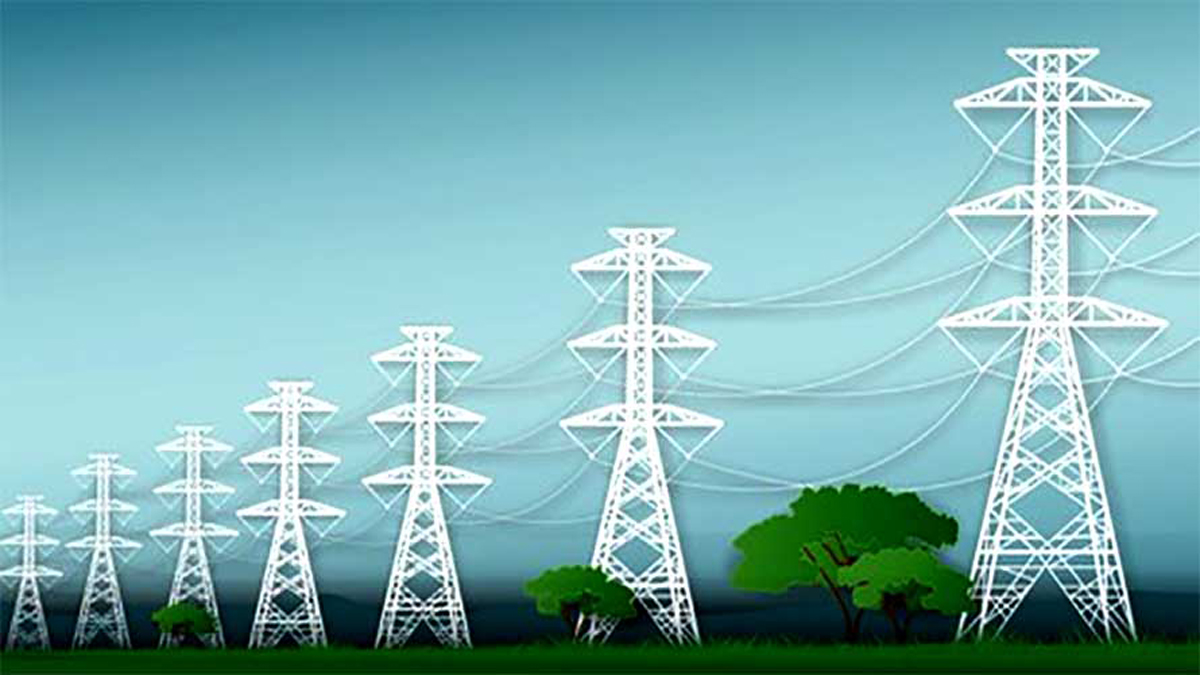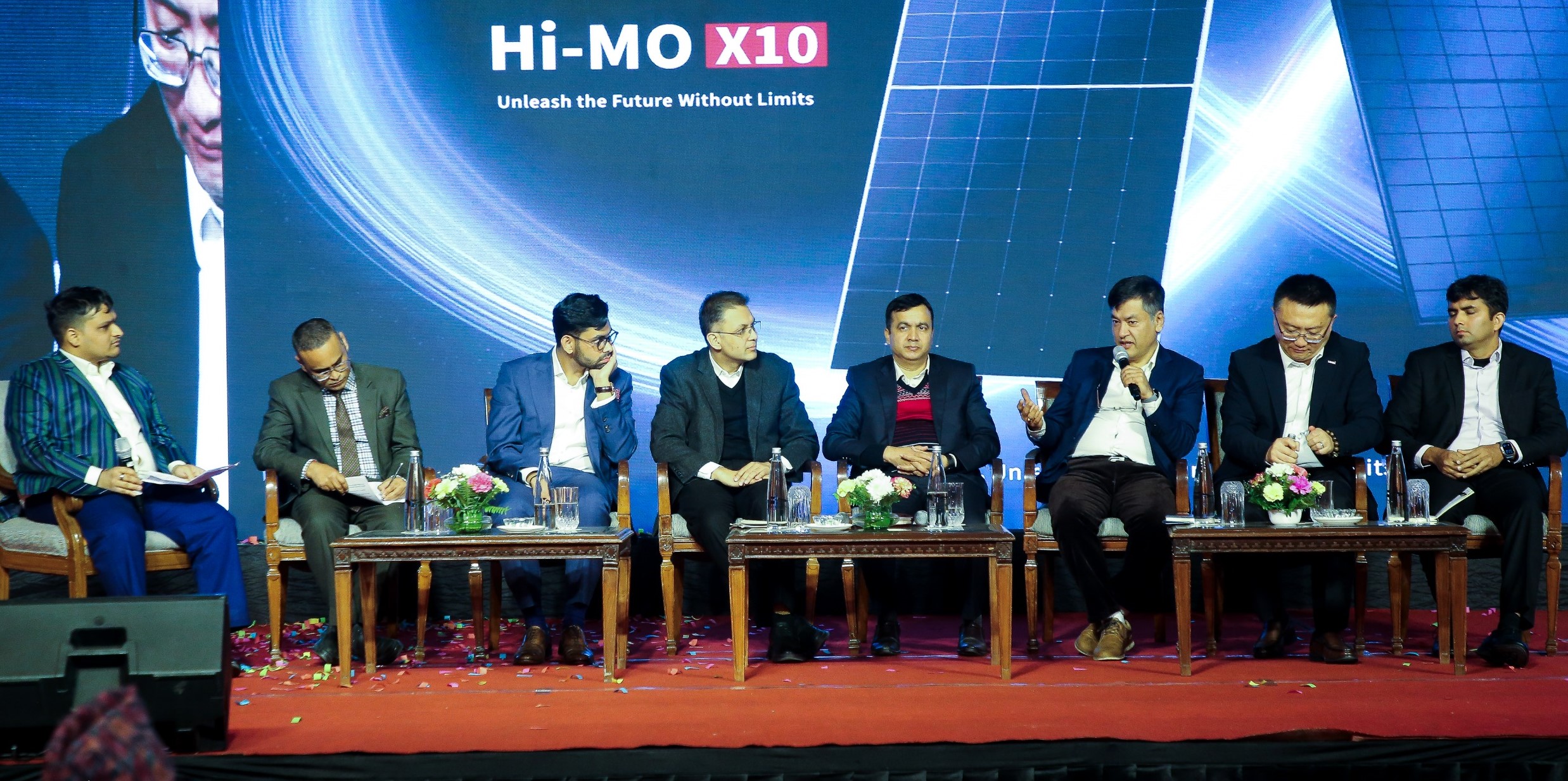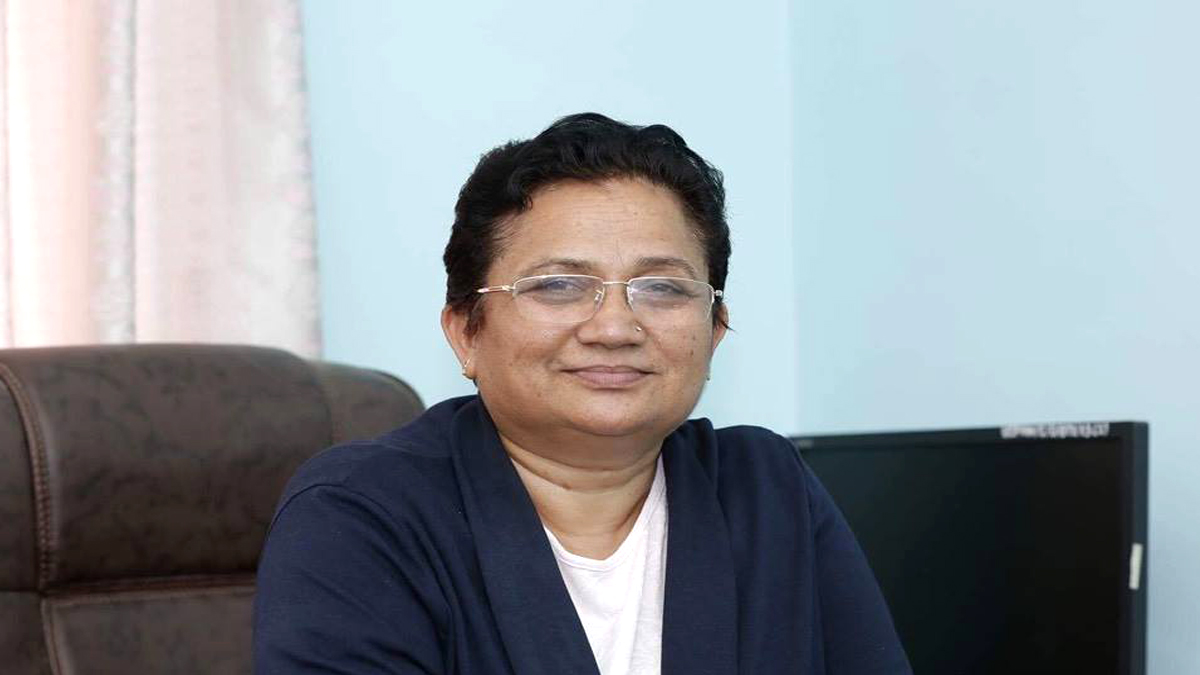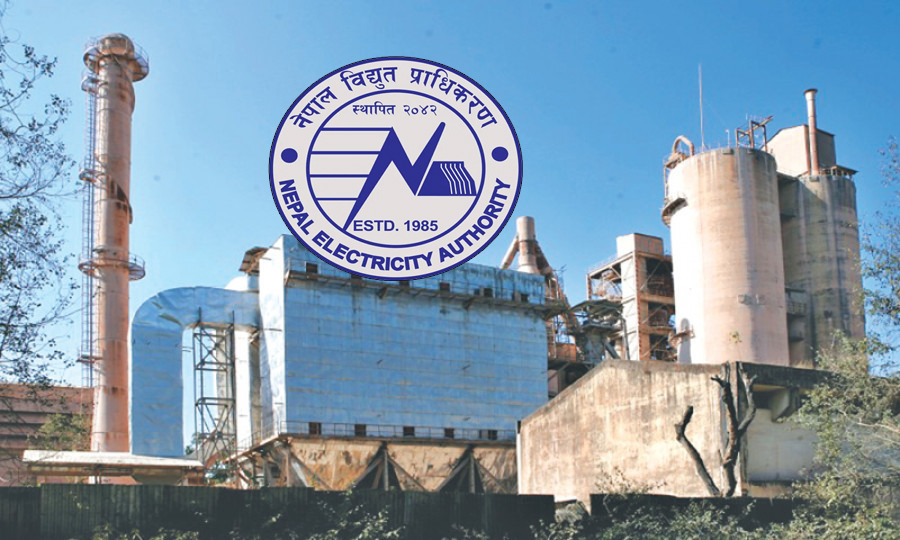Energy Update
Nepal, India firms sign first private power trade deal of the two nations

Nepal Power Exchange Limited and India’s Manikaran Power Limited on Monday signed a memorandum of understanding on energy trading.
The deal ends the monopoly of the state-owned power utility—Nepal Electricity Authority—in energy trade.

Observers see Monday’s development as a landmark deal that could pave the way for the country's private sector to sell electricity in the Indian market. The pact was signed during Nepal Power Market Summit 2022 held in Kathmandu.
Nepal Power Exchange Limited is a company promoted by many members of the Independent Power Producers’ Association of Nepal (IPPAN), the private sector body that promotes and encourages electricity development.

The signing of the agreement between two private sector firms in Nepal and India comes on the heels of approval by the Indian government to Nepal Electricity Authority to sell its electricity in the Indian Power Exchange market.
Experts and private sector representatives say the entry of private sector in energy trade would encourage more investment in power production and allow export of more electricity to some power-hungry countries like India and Bangladesh, which could help narrow down Nepal’s ballooning trade deficit.
Surging imports have become a major cause for concern for the government as its foreign exchange reserves have been depleting at a faster pace. The current trade scenario shows that imports may touch a Rs1 trillion mark in the first half of the current fiscal year 2021-22 that began in mid-July last year.
The trade deficit, which occurs when the value of a country's imports exceeds the value of its exports, has jumped 54.70 percent to Rs735.48 billion in the first five months [mid-July to mid-December] of the current fiscal year. The total trade—exports and imports—amounted to Rs838.40 billion in the first five months of this current fiscal year.
Experts say private sector engagement in energy trading would also minimise the risk of “power waste” particularly during the peak power production time or the rainy season.
Nepal private sector power developers are likely to be producing around 3,000 MW to 4,000 MW of energy in the next few years.
IPPAN president Krishna Prasad Acharya told the Post in October Nepal Electricity Authority has signed a power purchase agreement with private sector developers for around 3,500 MW and many of the projects are under construction, while projects with a combined capacity of 7,000MW are waiting to sign power purchase agreements with the authority.
Ganesh Karki, vice-president of IPPAN, told the Post the Indian company has pledged to acquire a 15 percent stake in Nepal Power Exchange Limited as per the agreement.
“Similarly, Manikaran has also agreed to purchase 500 MW electricity from Nepal Power Exchange Limited where the Indian company will also have a stake,” he added. “This is just the beginning.”
Officials and experts, however, say the private sector still has a long way to go when it comes to energy trade.
There are also questions whether the Nepali private sector would be able to sell electricity at competitive prices in the Indian power market.
“First, there is no law authorising the government to allow the private sector to engage in power trade even though there is willingness to provide licence for trading power to the private sector companies,” said Madhu Bhetuwal, spokesperson for the Ministry of Energy, Water Resources and Irrigation. “The private sector company may not immediately receive approval to engage in the electricity trade.”
The government had made a provision to allow the private sector to get involved in power trade in the Electricity Bill. The bill remains stuck at the National Assembly since mid-July 2020.
As per Section 29 of the bill, private sector companies can also get a licence for electricity trade and such licensed companies can engage in inter-country trade of power.
Section 30 of the bill says that a company authorised to trade electricity should take another licence from the energy ministry for inter-country trade or export and import of electricity. “If this bill is passed by parliament, it will pave the way for the government to issue trading licences to private companies,” said Bhetuwal.
Energy Minister Pampha Bhusal has frequently assured the private sector that the government is ready to issue them energy trading licences.
“The government has been asking for a credible ground that we can sell electricity in India before providing a licence,” said Acharya, the IPPAN president. "With the signing of an MoU with an Indian company, we have shown such ground. Now, the government should fulfil its pledge."
In late December last year, Bidhyut Byapar Company, a subsidiary of Nepal Electricity Authority, received the government’s permission to carry out cross-border trading of electricity.
Karki said that the private sector wished the electricity bill to be passed as early as possible.
“If not, the government should open the door for the private sector to enter into power trading through any other legal provision,” he added.
He said that the government should accelerate the process to allow private sector companies to enter into power trading even to ensure that excess power is not wasted.
After registering the Nepal Power Exchange Limited in 2019, the private sector has been lobbying with the government for permission to enter into power trading.
India had authorised the Nepal Electricity Authority to sell power in India's power exchange market in early November. After receiving approval from the Indian authorities, the authority had sold the power generated by the 24MW Trishuli Hydropower Project and the 15MW Devighat Hydropower Project to the India Energy Exchange Limited (IEX).
It was the first time that Nepal sold electricity in India's exchange market where the prices are determined on a competitive basis.
“We sold electricity to India for over a month and we discontinued in early December after we entered into a power deficit situation as a result of reduced power output from the run-of the river hydropower projects,” said Suresh Bahadur Bhattarai, spokesperson at the authority. “We are now purchasing electricity from India.”
The authority is, however, struggling to receive approval from Indian authorities for selling power to India from power projects other than Trishuli and Devighat Hydropower Projects, both of which were developed with the Indian government’s assistance.
“We are making efforts to get approval for selling electricity from other projects too,” said Bhattarai.
The authority has also sought approval from the Indian authority for selling electricity from Upper Tamakoshi, Upper Bhotekoshi and Marshyangdi whose combined installed capacity stands at 582.1MW.
IPPAN Vice-president Karki, however, said that the private sector could get approval from the Indian authorities more easily because of their relations with the Indian companies.
“For example, Manikaran will have a stake in our power trading company. As a company having an Indian stake, it may be easier for our company to get necessary approval from the Indian government,” he said.
According to him, a few other Indian companies have also shown interest to buy power from Nepal Power Exchange Limited.
India's Ministry of Power introduced a ‘Procedure for Approval and Facilitating Import/Export (Cross Border) of Electricity’ in February last year, setting the criteria for export and import of electricity from neighbouring countries. This made it clear how the Indian entities could purchase electricity from neighbouring countries.
The procedure has imposed certain restrictions for trading of power if there is investment from a country with which India shares land border in the generation of such power, which Nepali officials believe is aimed at Chinese investment in the power sector of Nepal given the strained ties between the two geopolitical rivals.
Officials at the Nepal Electricity Authority said that Indian authorities were very much sensitive about the potential Chinese components in the hydropower projects whose power Nepal wanted to sell to India.
However, Bhetuwal said that India at least set all procedures for procuring power from neighbouring countries though there are certain bottlenecks.
Officials said that selling electricity in the Indian power market would not be problematic after necessary approval from the Indian authorities.
“We could sell electricity unhindered in the Indian market after getting approval from Indian authorities,” said Bhattarai of the Nepal Electricity Authority. “You need to have electricity to sell and approval from Indian authorities.”
But officials said that the issue of domestic licence must first be resolved.
There is also a question about which transmission lines the private sector would use if the Nepal Electricity Authority has the monopoly over transmission lines.
The private sector can sign an agreement with the Nepal Electricity Authority for using its transmission lines.
“They should pay wheeling charges to Nepal Electricity Authority and the Indian company too for transmitting power through the Indian transmission system,” said Bhattarai. “The question is whether they can afford to sell electricity by paying wheeling charges in both Nepal and India.”
According to him, the Nepal Electricity Authority received an average price of just over INR3 per unit for selling electricity recently.
“Will the private sector be able to sell electricity profitably if prices remain lower?” asked Bhattarai.
But Karki, the IPPAN vice-president, said that the private sector would be free to decide whether to sell the electricity based on cost and profit estimates.
“We first want necessary approval from the Nepali government,” said Karki.
Conversation
- Info. Dept. Reg. No. : 254/073/74
- Telephone : +977-1-5321303
- Email : [email protected]











.jpg)

